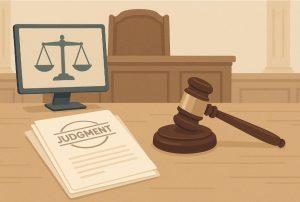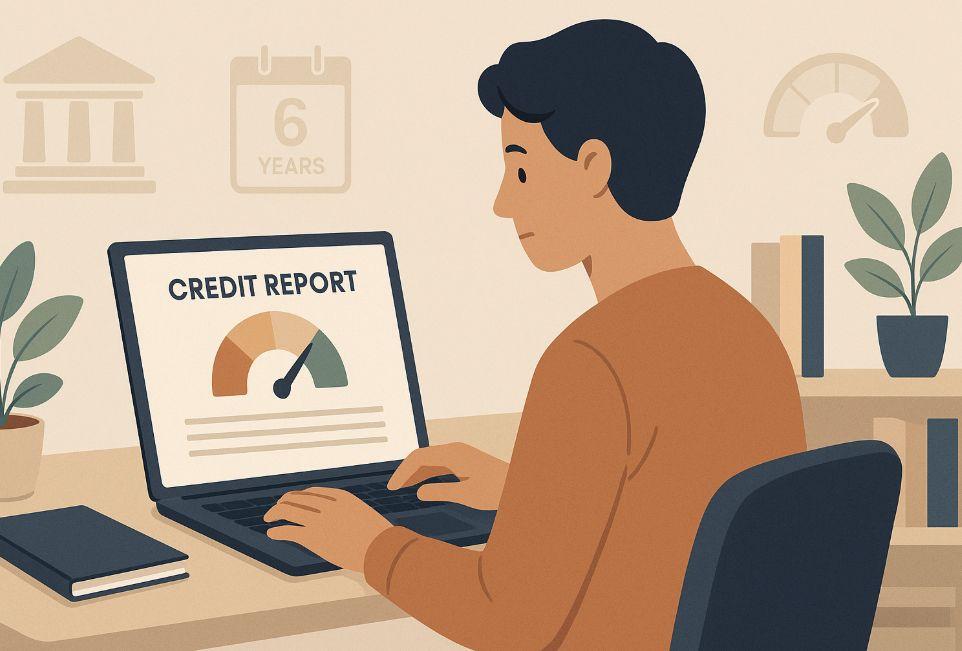A County Court Judgment (CCJ) can leave a lasting impression on your credit report, affecting everything from loan approvals to rental agreements. Understanding how long a CCJ stays on your credit file and what steps you can take to manage or remove it—is crucial for maintaining financial health and restoring creditworthiness.
What Is a County Court Judgment (CCJ)?

A County Court Judgment, commonly referred to as a CCJ, is a legal decision made by a county court in England, Wales, or Northern Ireland. It is issued against individuals or businesses that fail to repay a debt. A CCJ represents a formal declaration by the court that a person owes money to a creditor and has failed to make payment despite repeated requests.
Understanding the Purpose of a CCJ
CCJs serve as a legal tool for creditors to claim unpaid debts. They typically follow multiple failed attempts to recover money through informal means. When a CCJ is issued, it not only orders the debtor to pay the amount owed but also provides the creditor with enforceable options, such as using bailiffs or applying for an attachment of earnings order.
Once registered, a CCJ is recorded on your credit file, which can significantly impact your financial reputation and borrowing ability.
How Long Does a CCJ Remain on Your Credit Report?
A CCJ stays on your credit file for six years from the date of the judgment, regardless of whether it has been paid or not. This fixed duration is established by UK law and is enforced by credit reference agencies like Experian, Equifax, and TransUnion.
Satisfied vs Unsatisfied CCJs
A satisfied CCJ means the debt has been paid in full, while an unsatisfied CCJ indicates the debt remains unpaid. Both types remain on your credit report for the full six years. If the total amount owed under the CCJ is paid within 30 days from the date it was issued, the judgment can be erased from your credit file completely.
Failing to settle the debt within this time means the judgment will remain on record, although it will be marked as “satisfied” once paid, which is marginally better for your creditworthiness than an unsatisfied judgment.
How Does a CCJ Affect Your Credit Score in the UK?
A CCJ can cause a significant drop in your credit score, often ranging between 200 to 300 points, depending on your prior credit standing. This negative impact makes it harder to obtain loans, credit cards, mortgages, or even mobile phone contracts.
Long-Term Consequences on Creditworthiness
While a CCJ is visible on your credit record for six years, many lenders may consider you a greater lending risk during this time. Even after paying off the debt, the presence of a CCJ signals past financial difficulty and poor repayment habits.
Lenders use credit scores to assess reliability. A CCJ can also influence terms of credit offered, such as higher interest rates or lower borrowing limits. In some cases, applications may be outright rejected.
Can a CCJ Be Removed Early from Your Credit File?

While most CCJs remain on credit files for six years, there are circumstances under which they can be removed earlier.
Paying Within 30 Days of Judgment
Settling the entire CCJ debt within 30 days of the court ruling allows you to request its complete removal from your credit report. This process involves obtaining a certificate of cancellation and submitting it to the credit reference agencies.
Setting Aside a CCJ
In certain situations, such as not receiving court papers or being unaware of the proceedings, you can apply to have the CCJ “set aside.” If successful, this removes the judgment from your record. However, you must provide valid justification and act swiftly.
Updates Through Credit Agencies
Even after paying a CCJ, it won’t be automatically marked as “satisfied.” You’ll need to send proof of payment to the court and request a certificate of satisfaction, which you then submit to credit reference agencies. This update helps improve your credit standing, though the record remains.
How Can You Rebuild Your Credit After Receiving a CCJ?
Although the presence of a CCJ can severely affect your creditworthiness, there are proactive steps you can take to begin rebuilding your score.
Use Credit-Builder Tools and Services
Specialist products such as credit-builder credit cards and loans for bad credit are available. These tools are designed for those with poor credit histories and can help rebuild credit when used responsibly.
Maintain a Positive Payment Record
Going forward, it’s essential to meet all financial obligations on time. This includes utility bills, mobile contracts, and any existing credit agreements.
Monitor Your Credit File Regularly
Using free services like ClearScore or paid subscriptions from Experian, regularly checking your credit file can help track progress and spot any errors or fraudulent entries.
How Can You Check If You Have a CCJ?
Many people are unaware that a CCJ has been issued against them until they are rejected for credit. It’s crucial to check for any outstanding judgments to avoid surprises.
Use TrustOnline
The official source to check for CCJs in England and Wales is TrustOnline. For a small fee, this government-authorised service allows individuals and businesses to search the Register of Judgments, Orders and Fines.
Review Your Credit Reports
Another method is to obtain a copy of your credit report from all three major credit reference agencies. Each agency might hold slightly different data, so it’s advisable to check all of them.
How Does a CCJ Affect Major Financial Decisions?

The presence of a CCJ can have far-reaching implications beyond just credit cards or loans. Banks, letting agents, and some employers often see a CCJ as a warning sign of past financial difficulties.
Mortgage and Loan Applications
Many mainstream mortgage lenders will reject applicants with a recent CCJ. Others may offer mortgages but with higher interest rates and stricter terms. Mortgage lenders that cater to individuals with poor credit may still offer assistance, though typically with higher interest rates or stricter conditions.
Renting a Property or Employment Checks
Letting agents and landlords typically perform credit checks. A CCJ can make it difficult to pass these checks unless a guarantor is provided or additional deposits are paid.
Some employers, especially in the financial sector, may also view a CCJ as a concern during background checks.
What Are the Key Facts About CCJs You Should Know?
Here’s a comprehensive table to summarise the most critical details regarding CCJs:
| Aspect | Details |
| Definition | A court order for debt repayment |
| Duration on Credit File | 6 years from judgment date |
| Early Removal Option | Possible if paid within 30 days |
| Satisfied CCJ | Paid but still stays on file (marked “satisfied”) |
| Unsatisfied CCJ | Unpaid and negatively affects credit |
| Credit Score Impact | Significant drop; impacts future creditworthiness |
| Mortgage/Loan Implications | Likely rejection or higher interest rates |
| Check via TrustOnline | Official CCJ register search platform |
| Set Aside Option | Can be applied for if unaware of court action |
| Credit Report Updates | Must manually request satisfaction updates |
What Should You Remember About CCJs and Credit Files?

CCJs are not a permanent black mark but should be taken seriously. Their impact can be long-lasting, especially if unpaid or ignored. Individuals facing a CCJ should take immediate steps to either pay, dispute, or manage the consequences.
Understanding your financial standing, communicating with creditors, and taking professional advice where necessary can all contribute to overcoming the impact of a CCJ on your credit file.
Conclusion
FAQs About CCJs and Credit Files
What happens if I ignore a CCJ?
Ignoring a CCJ can lead to enforcement actions like bailiffs visiting your home, deductions from your wages, or freezing your bank account.
Can I get a mortgage if I have a CCJ?
Yes, but it’s more difficult. Some non-mainstream lenders might still consider your application, particularly if the CCJ is dated and marked as satisfied.
How do I prove a CCJ has been paid?
You can apply to the court for a Certificate of Satisfaction and send it to credit reference agencies to update your credit file.
Will a CCJ automatically be removed after 6 years?
Yes, even if it is unpaid, it will be removed from your credit file after six years from the judgment date.
Can I dispute a CCJ if I never received court papers?
Yes, you can apply to have the CCJ set aside by showing the court that you weren’t aware of the proceedings.
Do all credit agencies show the same CCJ information?
Generally yes, but discrepancies can occur. It’s wise to check all major credit reports from Experian, Equifax, and TransUnion.
Can a CCJ affect my ability to rent a flat?
Absolutely. Landlords and letting agents run credit checks and may reject tenants with unsatisfied CCJs or ask for a guarantor.









Leave feedback about this